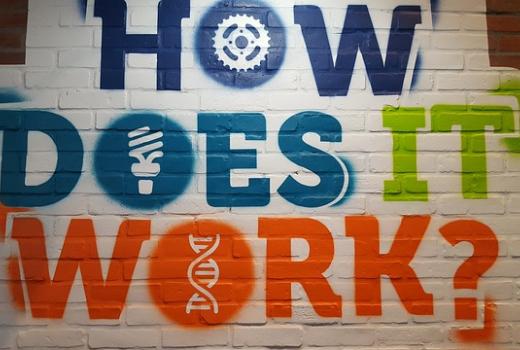Critical Thinking: What Do You Mean by That?

Critical Thinking: What Do You Mean by That?
Editors want "better critical thinking" from their reporters, but do they know what that precisely means? And, better yet, do they know how to instigate it in their newsrooms? Jill Geisler of Poynter Institute digested the complicated definition of critical thinking down to key elements and useful questions you can ask your reporters and your self.
Newsroom managers tell me they want the journalists on their teams to use better "critical thinking skills."My question is: just what do they really mean by that?For some, it means being skeptical -- the time-honored school of "If your mother says she loves you, check it out." That's a start at critical thinking.For other news managers, I fear it simply means: "Have the ability to read my mind and know exactly how I would do the story." That's pretty much the end of critical thinking. It is just emulation.So what really constitutes critical thinking? I did some checking. According to the Center for Critical Thinking, it is (now, stay with me here):
The intellectually disciplined process of actively and skillfully conceptualizing, applying, analyzing, synthesizing, and/or evaluating information gathered from, or generated by, observation, experience, reflection, reasoning, or communication, as a guide to belief and action. Try shouting that to your reporter as she heads out the door on a challenging story.
Let's look more closely. Much of the work of critical thinking can be broken down more simply. One team of experts broke it down into 35 individual skills. Here are some of those 35 that have great meaning for journalists:
• Thinking independently
• Exercising fairmindedness
• Exploring thoughts underlying feelings and feelings underlying thoughts
• Refining generalizations and avoiding simplifications
• Clarifying issues, conclusions, or beliefs
• Clarifying and analyzing the meanings of words and phrases
• Developing criteria for evaluation; clarifying values and standards
• Evaluating the credibility of sources of information
• Analyzing or evaluating arguments, interpretations, beliefs or theories
• Generating or assessing solutions
• Reading critically
• Listening critically
• Examining or evaluating assumptions
• Distinguishing relevant from irrelevant facts
• Making plausible inferences, predictions or interpretations
As I read that list, it reminded me how important those skills are to the role of the journalist. I also realized that the list demonstrates the difference between serious reporting and the infotainment twist-and-shout delivered via some cable news programs, talk radio shows and blogs, where critical thinking is missing in action.
As leaders, how can we talk about important critical thinking skills to our own staff members? How can we take those lofty-sounding skills and values and turn them into our daily conversation?I think we can do it through questions, which can be far more powerful than statements.
To that end, I offer some questions that could help encourage critical thinking in the newsroom:
• What assumptions do you have about the issues or individuals in your story?
• Is there another plausible explanation we should look at in this case?
• Have you worked as hard to disprove as to prove your hypothesis?
• What's missing here? Are we asking the right questions?
• Are we really challenging ourselves? Are we falling in love with our story as we see it now?
• Why is this information relevant to the story?
• Are we assuming that correlation is causation?
• How closely did we listen to all voices?
• Are we letting fear drive our thinking?
• Just because it has always been done this way before, is that a reason not to question?
• Just because we had a difficult time getting this information, does it make it particularly important or interesting?
• Do we have the expertise in this subject to form an appropriate conclusion? Is there more we need to learn?
• Are we oversimplifying or overgeneralizing?
• How's our logic? Are we falling prey to ad hominem arguments (personal attacks) or false dichotomies (mistaken belief that there are only these two options) instead of examining the issue more completely?
• Is this really fair?
As newsroom leaders pray that their staffs develop better critical thinking skills, they should be prepared to fully embrace another aspect of it: independence and courage. That means your critical thinkers will be more likely to question authority. They'll step up and challenge YOU. Are you ready for that?If you truly value a culture of critical thinking, you'll welcome those questions, too.Think about it.
Source: Poynter




